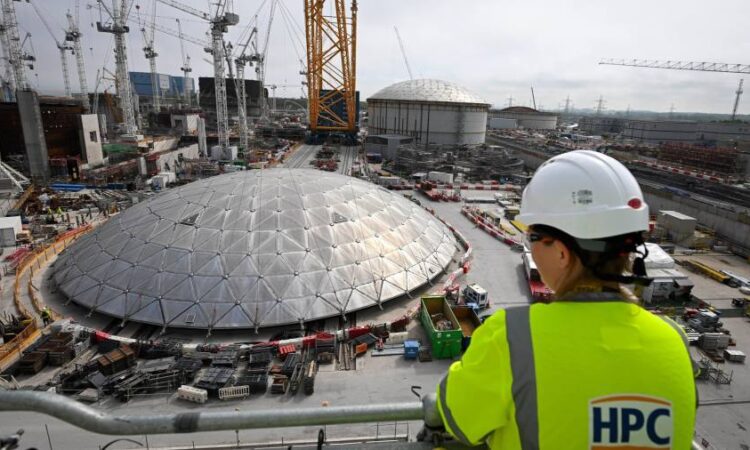
The British government is poised to redefine nuclear power as “green” as it seeks to drum up more private investment in the sector to improve domestic energy resilience.
Ministers are set to consult on proposals to change the so-called “taxonomy” — or financial classification system — of energy in order to redefine nuclear projects as sustainable investments. It is expected to lead to a reversal of the decision by the Treasury as recently as 2021 to exclude nuclear power from the so-called green investment framework.
The move echoes a decision last year by the European Commission to label both nuclear and some forms of gas as “green” investments, which prompted legal challenges from Greenpeace and a coalition of WWF and Client Earth.
The consultation comes as the government is set to provide about £80mn in seed funding for the launch of Great British Nuclear, a new body which will oversee plans to build a new generation of nuclear power stations in the UK, according to two people familiar with the negotiations.
Ministers are anxious to accelerate the programme which has been dogged by delays and cost overruns on the only new nuclear plant under construction at Hinkley Point in Somerset. The government, together with French state-backed utility EDF, are trying to raise £20bn in private finance for the next power station at Sizewell in Suffolk.
But investors have shown little interest in backing greenfield nuclear projects, because of the construction risks in the highly regulated, safety critical sector. All new nuclear projects across Europe have been hit by delays and big cost overruns.
Nick Stansbury, head of climate solutions at Legal and General Investment Management, warned that the changes to the taxonomy were unlikely to drive investment.

He said the “struggle to attract investors in the UK [was] not primarily about the ESG [environmental, social and governance] credentials, but more about the value proposition,” pointing to the high construction costs.
Moreover, some fund managers have previously questioned whether nuclear is a sustainable energy source, despite being low-carbon.
James Alexander, chief executive at the UK Sustainable Investment and Finance Association, a financial lobby group, said the inclusion of nuclear in the UK’s green taxonomy should mean capital flows “shift towards these activities over the longer term”. But he warned: “It is hard to avoid the long-term impact caused by nuclear waste, leading to questions about its overall sustainability.”
The announcements are expected to form part of a wider “Green Day” with the launch of a new Green Finance Strategy by business secretary Grant Shapps later this month. It is expected to see extra investment in CCUS — carbon capture and storage schemes.
Ministers will also update their strategy for reaching net zero by 2050 after a judge ruled last July that the original document provided insufficient detail and gave the government a deadline to rewrite it by the end of this month. The energy department refused to comment.
Meanwhile, EDF Energy announced on Thursday it would extend the operating life of two nuclear power stations in the north of England for a further two years, as the UK battles an energy crisis and high prices for consumers.
The Heysham 1 and Hartlepool plants are now expected to operate until the end of March 2026. The plants, which were due to close next year, have already had their operating lives extended by EDF. When it first took over the power stations in 2009, they were due to come out of service by 2014.
additional reporting by Gill Plimmer






